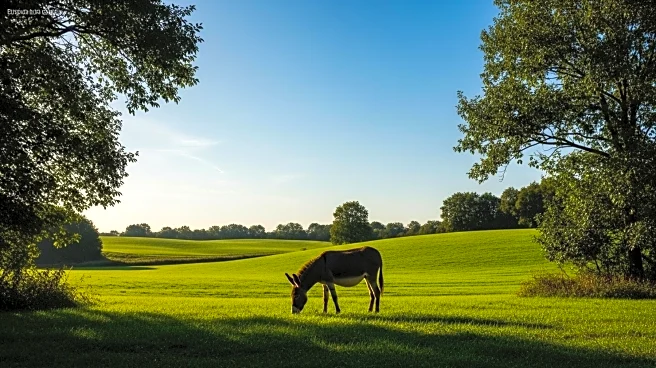What is the story about?
What's Happening?
Pakistan is exploring the potential of donkey farming as a new economic opportunity, driven by Chinese demand for donkey hides used in traditional medicine. The government has lifted a ban on donkey hide exports, allowing them under strict conditions through designated slaughterhouses in the Gwadar Free Zone. This move aims to balance economic opportunity with regulatory oversight. The China-Pakistan Donkey Industry Development Forum recently held in Islamabad highlighted the interest from Chinese investors and the potential for export diversification and rural income generation.
Why It's Important?
The development of a formal donkey farming industry in Pakistan could significantly diversify the country's export portfolio and strengthen economic ties with China. It presents a unique opportunity for rural communities to generate income from an undervalued asset. However, the industry faces challenges such as cultural sensitivities, sustainability concerns, and the need for transparent regulatory frameworks. Successful integration into Pakistan's investment facilitation ecosystem could lead to job creation and collaboration in research and development.
Beyond the Headlines
The ethical and cultural dimensions of donkey farming in Pakistan are complex, with concerns about animal welfare and the impact on small-scale farmers who rely on donkeys for daily survival. The government's approach to regulating the industry will be crucial in addressing these issues and ensuring that commercialisation does not harm vulnerable communities. The industry's success will depend on transparent and enforceable regulations that balance economic growth with ethical considerations.















